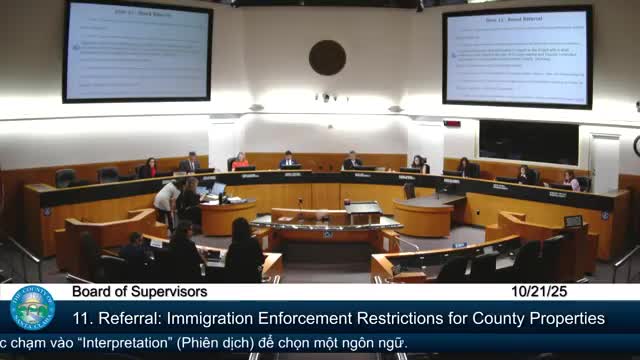ILO Reaffirms Commitment to Advancing Sustainable Development Goals in Bangladesh
Introduction: New Leadership and Renewed Focus on SDGs
The newly-appointed Country Director of the International Labour Organization (ILO) in Bangladesh, Max Tuñón, has reaffirmed the organization’s commitment to advancing decent work and social justice, directly aligning with the United Nations’ Sustainable Development Goals (SDGs). Upon submitting his credentials, Mr. Tuñón emphasized a collaborative approach with the government and social partners to foster sustainable investment and improve labor conditions, which are central tenets of the 2030 Agenda for Sustainable Development.
Core Objective: Achieving SDG 8 through Inclusive Growth and Decent Work
The primary focus of the ILO’s renewed efforts is the advancement of SDG 8: Decent Work and Economic Growth. Mr. Tuñón highlighted the urgency of creating quality jobs for the two million young people entering the Bangladeshi labor market annually. The collective strategy aims to ensure that economic growth is inclusive and translates into dignified employment opportunities.
- Promoting Decent Working Conditions: A direct contribution to Target 8.8 of the SDGs, which aims to protect labor rights and promote safe and secure working environments for all workers.
- Fostering Inclusive Economic Growth: Addressing Target 8.1 (sustained economic growth) and Target 8.5 (full and productive employment and decent work for all).
- Attracting Sustainable Investment: Creating an environment conducive to investment that supports the decent work agenda, contributing to SDG 9: Industry, Innovation and Infrastructure.
Strategic Areas of Intervention and SDG Alignment
The ILO’s technical and policy support in Bangladesh is structured around key strategic areas, each contributing to specific SDGs:
- Labour Law and Rights (SDG 8 & SDG 16): The ILO actively supports the review and amendment of the Bangladesh Labour Act. This work strengthens the implementation of labor laws and protects workers’ rights, reinforcing SDG 16: Peace, Justice and Strong Institutions by promoting the rule of law at national levels.
- Occupational Safety and Health (SDG 8): A critical component of the decent work agenda, enhancing occupational safety directly supports Target 8.8.
- Skills Development and Employability (SDG 4 & SDG 8): By developing job-relevant skills for both men and women, the ILO contributes to SDG 4: Quality Education (specifically Target 4.4 on skills for employment) and enhances the workforce’s capacity to secure decent employment (SDG 8).
- Social Protection Systems (SDG 1, SDG 5 & SDG 10): The ILO’s mandate includes enhancing social protection systems, with a particular focus on marginalized and vulnerable groups. This directly supports SDG 1: No Poverty, SDG 5: Gender Equality, and SDG 10: Reduced Inequalities.
Implementation through Partnerships (SDG 17)
The ILO’s support is implemented through the Decent Work Country Programmes. This framework is developed in tripartite agreement with the government, employers’ organizations, and workers’ representatives. This collaborative model exemplifies SDG 17: Partnerships for the Goals, leveraging multi-stakeholder partnerships to achieve sustainable development objectives. The ILO office in Bangladesh, one of the organization’s largest, is positioned to drive this agenda forward, promoting fair, safe, and sustainable labor practices in line with global standards and the national development vision.
Analysis of the Article in Relation to Sustainable Development Goals
1. Which SDGs are addressed or connected to the issues highlighted in the article?
- SDG 8: Decent Work and Economic Growth: This is the most prominent SDG in the article. The text repeatedly mentions the ILO’s commitment to “advance decent work,” ensure “inclusive economic growth that creates quality jobs,” protect “workers’ rights,” and improve “occupational safety.” The focus on the “two million young men and women entering the labour market each year” directly relates to promoting full and productive employment.
- SDG 1: No Poverty: The article mentions the ILO’s support for “enhancing social protection systems, particularly for marginalized and vulnerable groups.” Social protection systems are a key strategy for poverty reduction and providing a safety net for the most vulnerable, which is the core mission of SDG 1.
- SDG 4: Quality Education: The article states that the ILO works to “enhance the employability of men and women by developing job-relevant skills.” This directly connects to the goal of ensuring inclusive and equitable quality education and promoting lifelong learning opportunities, specifically focusing on technical and vocational skills for employment.
- SDG 10: Reduced Inequalities: The emphasis on “inclusive economic growth,” “social justice,” and enhancing social protection for “marginalized and vulnerable groups” aligns with the goal of reducing inequality within and among countries. Ensuring decent work and fair labor practices helps to distribute the benefits of economic growth more evenly.
- SDG 16: Peace, Justice and Strong Institutions: The article highlights the ILO’s technical support in “reviewing and amending the Bangladesh Labour Act, and in strengthening the implementation of labour laws.” This work contributes to building effective, accountable, and inclusive institutions at all levels and promoting the rule of law.
2. What specific targets under those SDGs can be identified based on the article’s content?
-
Under SDG 8 (Decent Work and Economic Growth):
- Target 8.3: The goal to “promote entrepreneurship through an enabling business environment” directly supports this target, which aims to promote development-oriented policies that support decent job creation and entrepreneurship.
- Target 8.5: The commitment to “advance decent work,” achieve “inclusive economic growth that creates quality jobs,” and ensure “decent working conditions for a larger share of the workforce” aligns with this target of achieving full and productive employment and decent work for all.
- Target 8.6: The specific mention of “two million young men and women entering the labour market each year” highlights the urgency of addressing youth employment, which is the focus of this target.
- Target 8.8: The work on “strengthening the implementation of labour laws, occupational safety, and workers’ rights” is a direct implementation of this target, which is to protect labour rights and promote safe and secure working environments for all workers.
-
Under SDG 1 (No Poverty):
- Target 1.3: The statement about supporting the “enhancing social protection systems, particularly for marginalized and vulnerable groups” directly corresponds to this target, which calls for implementing nationally appropriate social protection systems for all.
-
Under SDG 4 (Quality Education):
- Target 4.4: The objective to “enhance the employability of men and women by developing job-relevant skills” is directly related to this target, which aims to increase the number of youth and adults who have relevant skills for employment and decent jobs.
-
Under SDG 16 (Peace, Justice and Strong Institutions):
- Target 16.b: The support for “reviewing and amending the Bangladesh Labour Act” and promoting “fair, safe, and sustainable labour practices” aligns with this target to promote and enforce non-discriminatory laws and policies for sustainable development.
3. Are there any indicators mentioned or implied in the article that can be used to measure progress towards the identified targets?
-
For Target 8.5 and 8.6:
- The article mentions “two million young men and women entering the labour market each year.” This implies that progress could be measured by indicators such as the youth unemployment rate (Indicator 8.6.1) and the overall employment-to-population ratio, tracking how many of these new entrants secure “quality jobs.”
-
For Target 8.8:
- The focus on “occupational safety” implies the use of indicators like the frequency rates of fatal and non-fatal occupational injuries (Indicator 8.8.1).
- The effort to strengthen “workers’ rights” and “labour laws” implies monitoring the level of national compliance with labour rights (freedom of association and collective bargaining) based on ILO and national legislation (Indicator 8.8.2).
-
For Target 1.3:
- The goal of “enhancing social protection systems” suggests that progress would be measured by the proportion of the population covered by social protection floors/systems (Indicator 1.3.1), especially for the “marginalized and vulnerable groups” mentioned.
-
For Target 4.4:
- The work on “developing job-relevant skills” implies a need to measure the proportion of youth and adults with relevant technical and vocational skills for employment (related to Indicator 4.4.1).
4. Table of SDGs, Targets, and Indicators
| SDGs | Targets | Indicators (Implied from the article) |
|---|---|---|
| SDG 8: Decent Work and Economic Growth |
8.3: Promote development-oriented policies that support productive activities, decent job creation, entrepreneurship, creativity and innovation.
8.5: Achieve full and productive employment and decent work for all. 8.6: Substantially reduce the proportion of youth not in employment, education or training. 8.8: Protect labour rights and promote safe and secure working environments for all workers. |
Growth in entrepreneurship and enabling business environment.
Employment-to-population ratio. Youth unemployment rate (tracking the “two million young men and women entering the labour market”). Frequency rates of fatal and non-fatal occupational injuries; Level of national compliance with labour rights. |
| SDG 1: No Poverty | 1.3: Implement nationally appropriate social protection systems and measures for all… and achieve substantial coverage of the poor and the vulnerable. | Proportion of population covered by social protection systems, particularly for “marginalized and vulnerable groups.” |
| SDG 4: Quality Education | 4.4: Substantially increase the number of youth and adults who have relevant skills, including technical and vocational skills, for employment, decent jobs and entrepreneurship. | Proportion of youth and adults with “job-relevant skills.” |
| SDG 10: Reduced Inequalities | 10.4: Adopt policies, especially fiscal, wage and social protection policies, and progressively achieve greater equality. | Impact of social protection policies on “marginalized and vulnerable groups” and inclusive growth metrics. |
| SDG 16: Peace, Justice and Strong Institutions | 16.b: Promote and enforce non-discriminatory laws and policies for sustainable development. | Progress in “reviewing and amending the Bangladesh Labour Act” and strengthening its implementation. |
Source: newagebd.net







